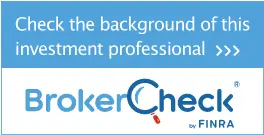Keep Your Plan Assets Safe
Six Easy Steps to Keep Your Plan Assets SafeCyber fraud is a growing concern globally. Individuals are typically very careful to keep their bank account and email authentication information safe, but they aren’t always smart with the rest of their personal information. Participants need to be vigilant with their retirement savings accounts as well. In […]
Retirement Plan Fees
Retirement plan fees are complicated. Between administration, investment management, recordkeeping, consulting, revenue sharing, sub-TA and 12b-1, it isn’t always clear to plan participants or plan sponsors exactly what they’re paying, how much they’re paying or even who’s paying the fees.
Record Retention
<< BLOG HOME What’s the Magic Number When it Comes to Record Retention?You don’t need to be a magician to know what records to keep and for how long. While most providers can supplyreports and plan documents, the plan administrator remains ultimately responsible for retaining adequate records that support the plan document reports and filings. […]
IRS Audit Tips
ARE YOU PREPARED FOR AN IRS AUDIT? The Internal Revenue Service’s (IRS’s) Employee Benefit Audit Program is used to audit and enforce. The IRS’s emphasis, with respect to defined contribution plans is on compliance with the requirements of the Internal Revenue Code (the Code), the plan’s tax qualification and administration of all plan documents. In […]
Collective Investment Trusts
CITs – The Fastest Growing Investment Vehicle Within 401(k) PlansFor almost a century, collective investment trusts (CITs) have played an important role in the markets. They were originally introduced in 1927. For the vast majority of their existence, CITs were available only in defined benefit (DB) plans. In 1936 CIT use expanded in DB plans […]
